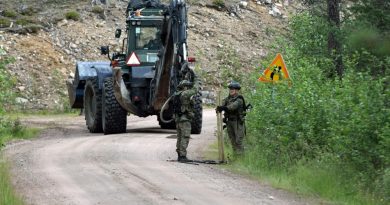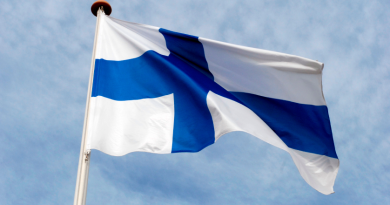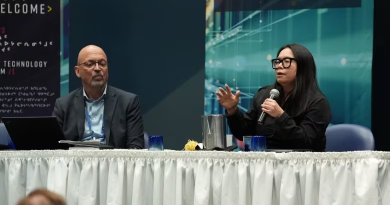Indigenous mapping conference in Arctic Canada gives attendees on-the-land skills
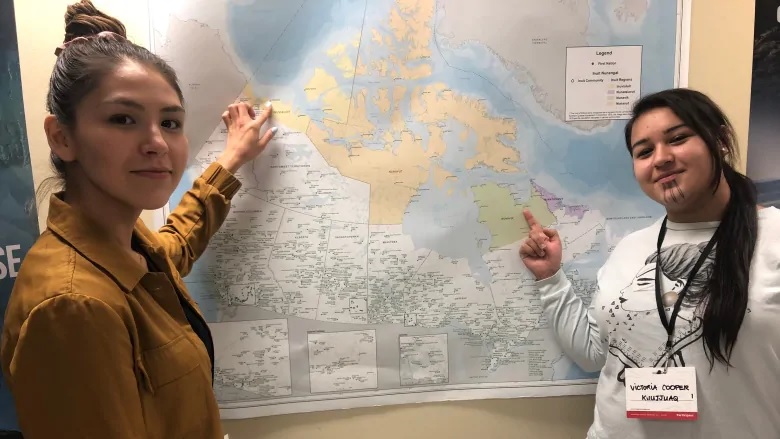
About 75 people from across Canada, and as far as Australia and New Zealand, are in Inuvik, N.W.T., in northwestern Canada, to attend an Indigenous mapping workshop this week.
The goal of the sixth annual Indigenous Mapping Workshop is to give people technological skills that will advance their local and traditional knowledge to use for hunting, tracking the effects of climate change, and more.
“We’re also hearing things about how we can combine that traditional, Indigenous and Inuit knowledge with scientific data,” said Steve DeRoy, director of the Firelight Group, an Indigenous consulting group that helped put on the conference.
“It’s a real nice blend here of folks that are coming to this workshop that have built all these different perspectives, and it’s a nice opportunity and a platform for people … to share those ideas.”
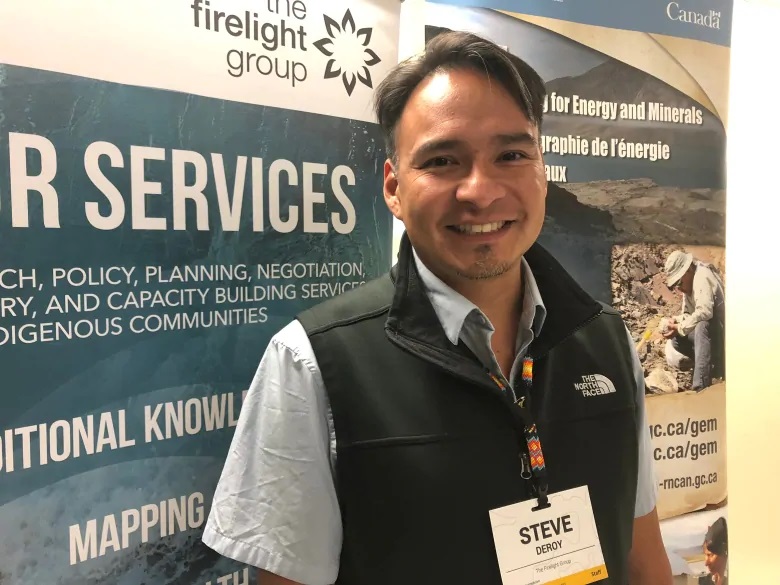
DeRoy said the workshops are set up so that people can choose the type of training that will benefit them the most.
There are trainers at the event from Google and Esri Canada, both of which provide geographic information system (GIS) software and programs. GIS is a computer system for capturing, storing and displaying geographic data.
“What we’re trying to do is say, ‘here’s a suite of tools you might use to solve those problems that you might be facing.'”
Tuktoyaktuk monitor learns new skills
Obie David James Anikina came from Tuktoyaktuk, about 100 km north of Inuvik, for the event hoping to learn skills that will better benefit his job. He does climate research and monitoring for the Tuktoyaktuk Community Corporation.
“It would help me in the future to learn the technology for the surveys, and make the job easier,” said Anikina.
He said he didn’t have much knowledge of some of the technologies he’s been using at the three-day conference, like GoogleEarthPro.
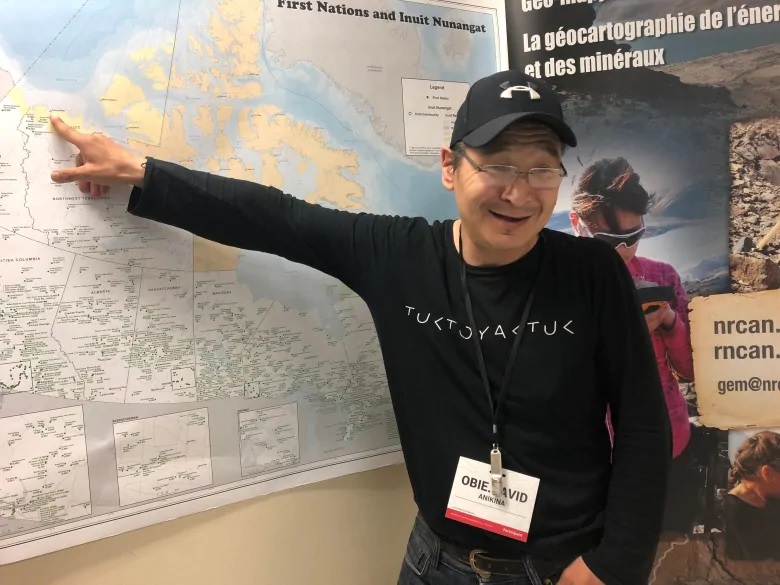
Anikina said in Tuktoyaktuk it’s easy to see the erosion on the shoreline and the tundra, but climate change is affecting them in ways that’s not always as visible.
“The whole cycle is two weeks to months earlier,” said Anikina. “It’s having a big impact on the migratory animals … we have to find ways to adapt.”
He said they need to monitor year-round because the land is changing daily.
Victoria Cooper travelled from Kuujjuaq, Nunavik, the Inuit region of Northern Quebec, as a youth delegate.
“I like to use maps as a tool when I’m out hunting. I set where my general spot is for hunting grounds,” said Cooper.
She said although she tries to return to the same places to hunt, she’s been seeing a difference in her surroundings due to climate change.
She writes down the changing conditions so she is better prepared each time she’s out, and is hoping these workshops will give her more knowledge.
“I’m trying to collect more tools and more knowledge from Indigenous [people] all across Canada… maybe it’s going to benefit me in the future.”
First time up North
Organizers said they’ve heard for years that they need to host the conference out of southern Canada, so they jumped at the opportunity to host in Inuvik.
“It’s prohibitive for a lot of people that live up in the North to travel south. So we just answered the call of the invitation and came up,” said DeRoy, with Firelight.
Firelight partnered with the Aurora Research Institute and the Inuvialuit Regional Corporation to put on the annual event this year.
He said the farthest north they’ve gone before was Winnipeg, and bringing the event to the Arctic town has allowed them to have more Indigenous participants than in years past.
The conference, which started Tuesday, wraps up on Thursday.
Related stories from around the North:
Canada: Researchers get rare time-lapse video of glacial lake flood in Northern Canada, CBC News
Norway: Climate change is about to divide Norway’s largest Arctic island, The Independent Barents Observer
Russia: Retreating ice reveals new land in Arctic Russia, The Independent Barents Observer
United States: Super salty water in northern Alaska helping scientists learn about conditions for life in space, CBC News

